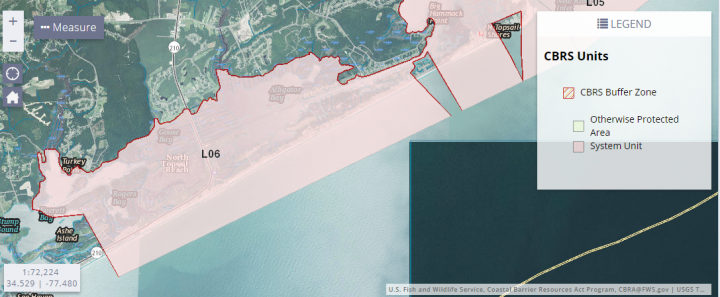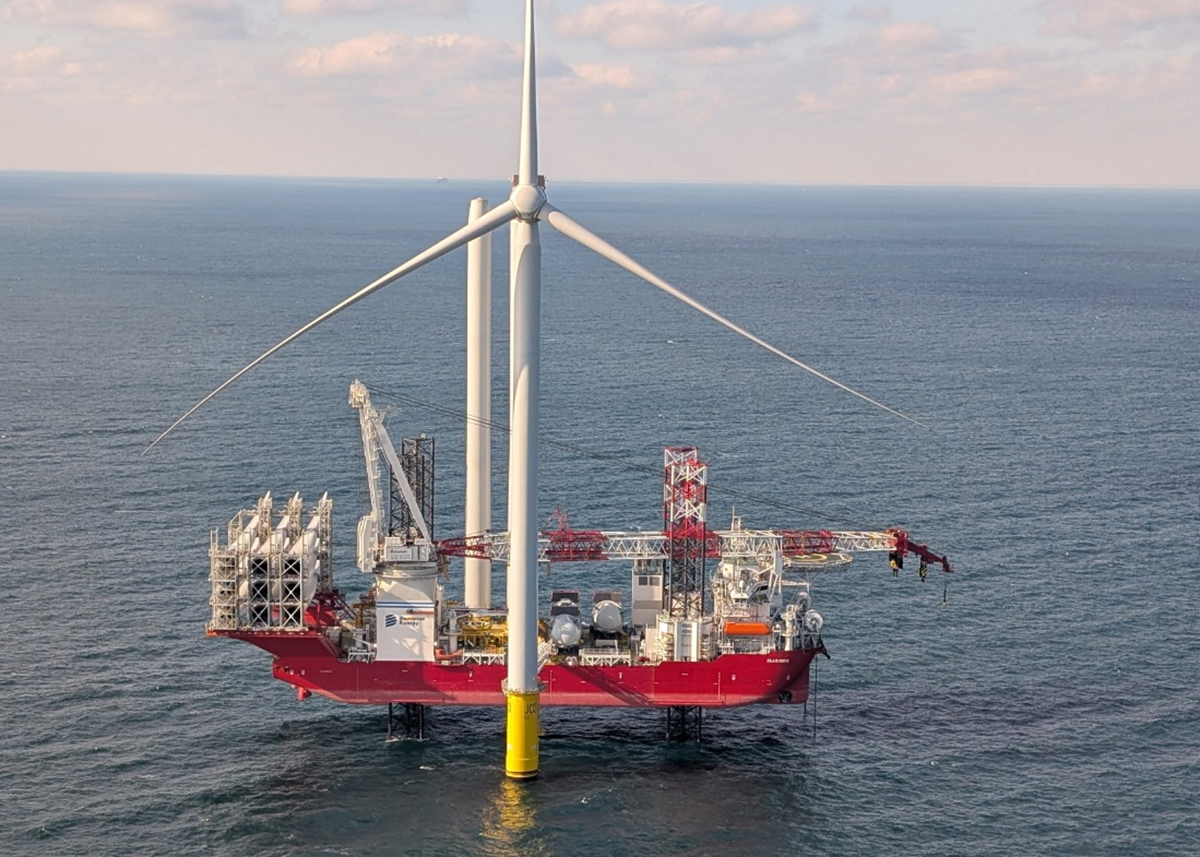
This story has been updated to clarify the description of the court ruling in the federal lawsuit involving Marlow Bostic.
NORTH TOPSAIL BEACH – A bill to remove the coastal barrier zone boundary restricting federal aid to a large portion of North Topsail Beach is back on the table for congressional review.
Supporter Spotlight
Senate Bill 1745 would erase the federal Coastal Barrier Resources Act, or CBRA (pronounced “cobra”), designation that currently covers about 70 percent of the town.
The bill, introduced by U.S. Sen. Thom Tillis, R-N.C., has been referred to the Senate Committee on Environment and Public Works. U.S. Sen. Richard Burr, R-N.C., is the bill’s co-sponsor.
“This legislation would revise the Coastal Barrier Resources System to take out certain portions of North Topsail that were included when the system was created in 1982,” Tillis said in a statement to Coastal Review. “I look forward to working with Senator Burr to see that our coastal communities have the proper resources they need.”

If passed into law, the Secretary of the Interior would have up to 30 days after the bill is enacted to revise the CBRA map to omit properties “that are serviced by infrastructure” along N.C. 210 and New River Inlet Road.
The bill is a continuation of a more than 30-year push by the town to get the CBRA designation removed.
Supporter Spotlight
Congress passed CBRA in 1982 to discourage building on relatively undeveloped barrier islands by cutting off federal funding and financial assistance in hurricane-prone, biologically rich areas.
The U.S. Fish and Wildlife Service, which is responsible for designating and mapping CBRA units, determined that since the unincorporated north end of Topsail Island was largely undeveloped the land met the criteria to be placed within CBRA.
The agency designated more than 6,000 acres as CBRA lands.
Throughout the years, North Topsail Beach officials have steadfastly argued the town’s CBRA boundaries are erroneous because land in the zone was already under development and had a full complement of infrastructure, including roads, water, sewer and power before CBRA was enacted and prior to the town incorporating in 1990.
The late Marlow Bostic, the man responsible for much of the town’s original development and one of the most penalized builders in the state, filed a federal lawsuit to block the CBRA inclusion. A district court judge denied the request by Bostic and a handful of North Topsail property owners for a temporary restraining order and preliminary injunction, ruling that the CBRA designation was justified. The court of appeals upheld the district court’s ruling and dismissed the case.
The fish and wildlife service has maintained North Topsail Beach was accurately mapped.
Anyone who owns property within the CBRA unit cannot participate in the National Flood Insurance Program, or NFIP, or apply for a Veterans Affairs loan.
The town was recently moved from a Class 7 to a Class 5 in the NFIP Community Rating System, a voluntary incentive program that rewards communities for taking on higher standards in flood plain management.
The higher classification will save North Topsail Beach property owners with federal flood insurance an average of more than $400 annually in premiums.
North Topsail Beach is a little more than 11 miles long. Nearly 7 miles of the town’s beach does not qualify for federal storm reduction projects because it is in a CBRA zone.
The town wants 659 acres of developed land removed from CBRA and another 2,155 undeveloped acres re-designated as “otherwise protected areas,” or OPAs.
OPAs are designated by the fish and wildlife service as lands for wildlife refuges, sanctuaries, recreation or natural resource conservation areas. The only federal spending prohibited within OPAs if federal flood insurance.
The undeveloped land is primarily wetlands and currently zoned as conservation areas.
North Topsail Beach aldermen earlier this month agreed to table a decision to consider adopting an updated version of the town’s Coastal Area Management Act, or CAMA, Land Use Plan.Proposed changes to the land use plan include striking a rule that prohibits the rezoning of conservation-designated lands. One of the concerns raised about the potential change is that it may hurt the town’s efforts to get the CBRA revision.
At the recommendation of former congressman turned lobbyist Mike McIntyre, a senior adviser and director of government relations for the Poyner Spruill law firm, North Topsail aldermen adopted a resolution Aug. 2 affirming the town’s commitment to urging the government to revise the CBRA map.
“I think that is a pretty good statement of what our motives are and what it would do for us,” said Carin Faulkner, the town’s assistant manager and clerk.
Calls to members of the town board were not returned by the time this article was published.
Tillis’ bill is not the first to be introduced to Congress.
U.S. Rep. Walter B. Jones, R-N.C., and former U.S. Sen. Kay Hagan, a Democrat, both introduced bills a few years ago to revise the CBRA designation in North Topsail Beach.
The bills did not move forward because the fish and wildlife service did not support the revisions.







